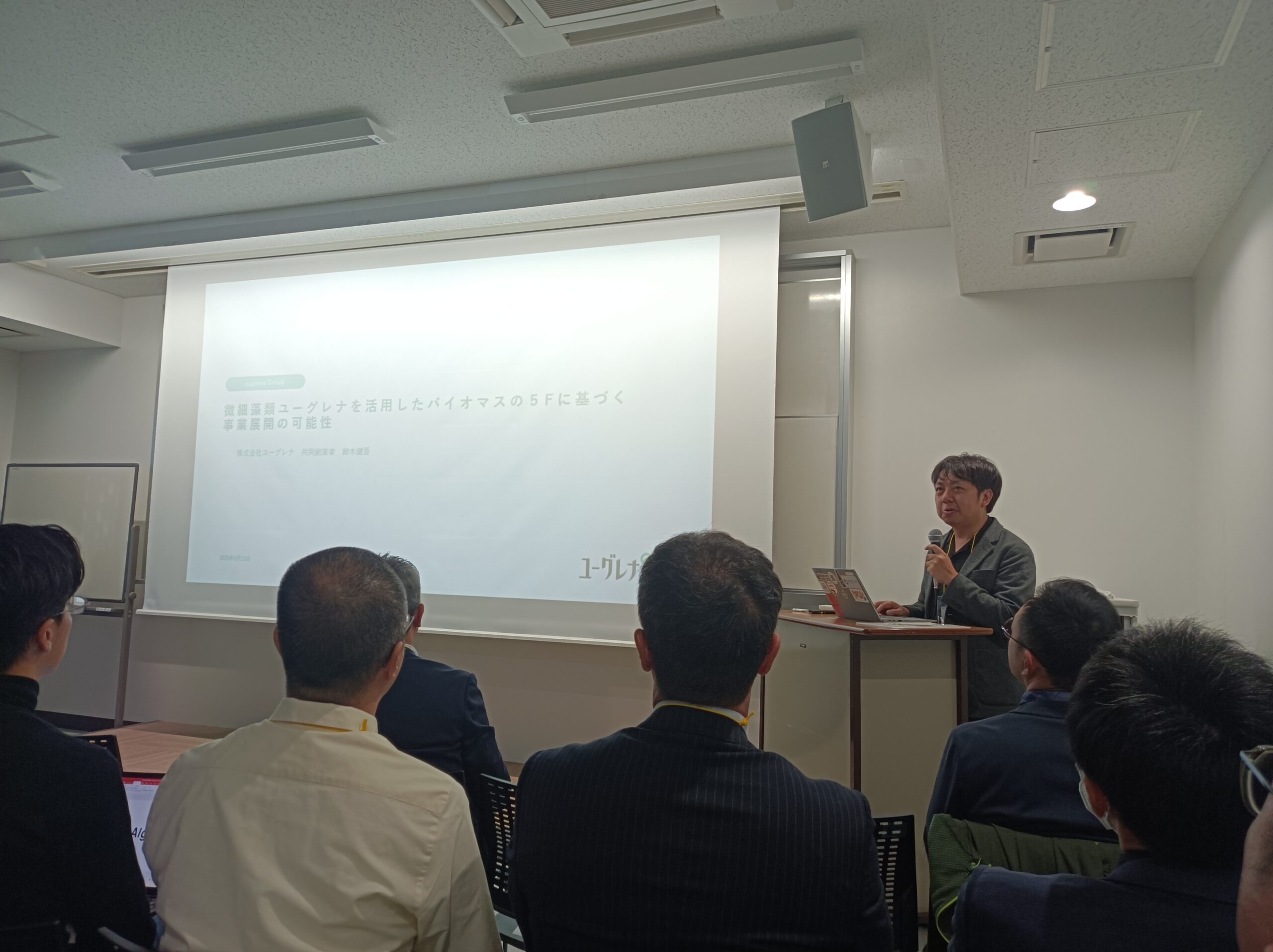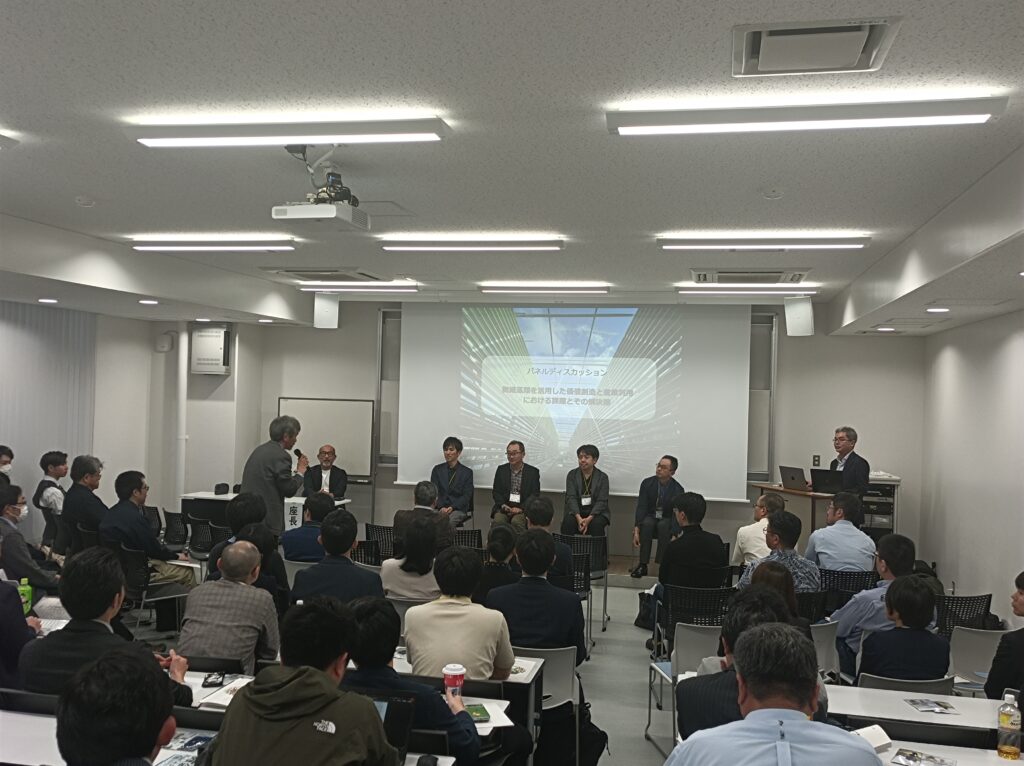
Report on Dr. Kengo Suzuki’s Participation in the 49th Annual Meeting of the Japanese Society of Phycology
As a member of the R&D team at Euglena Co., Ltd., I would like to share a brief report on the recent participation of our Co-Founder and Executive Fellow, Dr. Kengo Suzuki, in a special session held during the 49th Annual Meeting of the Japanese Society of Phycology, which took place on March 23, 2025, at the University of the Ryukyus in Okinawa.
The session, titled “Public Company Session: Business Development of Microalgae in Collaboration with Okinawan Industry and Academia”, brought together leading companies and researchers who are actively engaged in microalgae-related projects in Okinawa. The event was held in recognition of the growing role of microalgae in Japan’s efforts toward carbon neutrality by 2050, as declared by then-Prime Minister Yoshihide Suga in 2020. Okinawa, with its unique biological resources, favorable climate, and established research infrastructure, has become a hub for microalgae research and commercialization, hosting more than ten companies in this field.
During the session, Dr. Suzuki gave a presentation titled “The Potential of Business Development Based on the 5Fs of Microalgae Biomass Using Euglena”. He shared insights from Euglena Co., Ltd.'s long-standing work in applying microalgae, particularly Euglena gracilis, across diverse sectors including food, fuel, fiber, feed, and fertilizer—the so-called "5Fs" framework. He emphasized the need for scalability, affordability, and stable production in order to turn algal research into real industrial value.
Following the presentations, Dr. Suzuki participated in a lively panel discussion with other speakers, focusing on the theme: “Value Creation and Industrial Utilization of Microalgae: Challenges and Solutions.”
In the discussion, Dr. Suzuki pointed out that although the expectations for the algae market had been high, actual market performance has often diverged from predictions. He noted that while Euglena's production facilities have excess capacity, the economics of converting microalgae into fuel remain challenging. He stressed that quality should not be the differentiating factor for fuel products; instead, companies must achieve cost and delivery advantages through scale. However, scaling up production alone is difficult for a single company, highlighting the need for industry-wide collaboration.
Other panelists echoed similar concerns. Discussions touched on issues such as:
- The need for better public understanding of algae-based solutions
- The importance of efficient, small-batch production
- The challenges in operationalizing large-scale open pond systems
- The potential of combining algae with tourism and aquaponics models
Dr. Suzuki also shared his vision for the future of algal fuels, suggesting that such technologies may eventually need to be regulated and promoted under a national framework—similar to Malaysia’s palm oil industry overseen by MPOB (Malaysian Palm Oil Board). He further emphasized the importance of life cycle assessment (LCA) and adaptability to either global-scale deployment or local distributed energy systems.

We sincerely thank the organizers of the Japanese Society of Phycology for the opportunity to present our work and exchange ideas with such a diverse group of stakeholders. Events like this are critical in promoting cross-sector collaboration and moving us closer to realizing the full potential of microalgae for a sustainable future.
